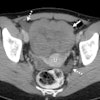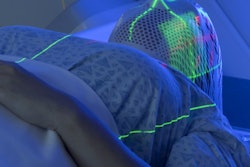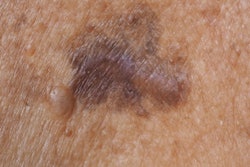Cancer treatments such as radiation therapy and chemotherapy may lead to a lower risk of Alzheimer’s disease in breast cancer survivors, suggest findings published June 20 in JAMA Network Open.
Breast cancer survivors had an 8% lower risk of Alzheimer’s disease compared with age-matched women without breast cancer, wrote a team led by Su-Min Jeong, MD, from Seoul National University in South Korea. The researchers also found that breast cancer treatment with radiation was tied to a lower risk of Alzheimer’s disease.
“This suggests that standard breast cancer treatments, including radiation therapy, may not increase and may even reduce Alzheimer’s dementia risk in the short term,” Jeong told AuntMinnie. “Clinicians can use this evidence to reassure breast cancer patients concerned about their cognitive health.”
While some breast cancer survivors have reported cognitive impairment tied to their cancer, a phenomenon known as “chemobrain,” evidence is mixed when it comes to how breast cancer survival may be linked to Alzheimer’s risk. The researchers noted that the results vary by age at breast cancer diagnosis, the type of treatment received, and time since treatment. They also pointed out that previous studies did not include patient-level characteristics.
Shin and colleagues evaluated Alzheimer’s risk among breast cancer survivors compared with cancer-free women. They also investigated potential associations between cancer treatments and Alzheimer’s disease risk.
The retrospective study included data collected between 2010 and 2016 from 70,701 women who underwent breast cancer treatment. The researchers matched these women with healthy controls at a one-to-three ratio. The women underwent a median follow-up of 7.3 years.
The team reported 1,229 cases of Alzheimer’s dementia found in the breast cancer survivors, translating to an incidence rate of 2.45 cases per 1,000 person-years.
Breast cancer survivors showed a slightly lower risk of developing Alzheimer’s compared with cancer-free women, with a subdistribution hazard ratio (SHR) of 0.92. This trend especially applies to women who are 65 or older (SHR, 0.92).
However, landmark analyses revealed that this lower risk did not continue beyond five years of survival, the researchers wrote.
Cancer treatment with radiation therapy also led to a lower risk of Alzheimer’s dementia among breast cancer survivors, with an adjusted hazard ratio of 0.77. The researchers also found no association between Alzheimer’s risk and treatment with chemotherapeutic agents.
Jeong said that while these findings are not directly applicable to individual-level risk assessment for Alzheimer's disease in women, they may help reassure breast cancer survivors that their history of cancer and its treatment are not tied to an increased risk of Alzheimer's disease.
She told AuntMinnie that the team is continuing research on long-term health outcomes in cancer survivors, with a particular focus on breast cancer.
“As family physicians, we are especially interested in cancer prevention, survivorship care, and improving overall health outcomes for cancer survivors,” Jeong told AuntMinnie.
The full study can be read here.




















